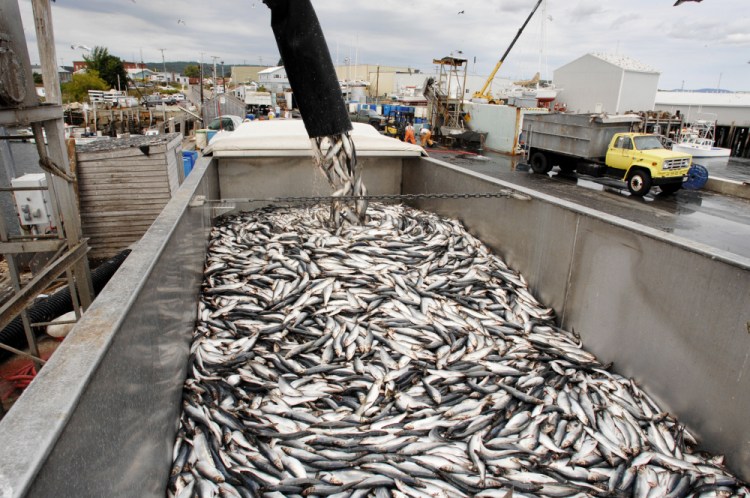Regulators vote to consider changing the rules on haddock caught by herring fishermen.
Fishing regulators are trying to broker peace between two of the most economically important fisheries in the Northeast: herring and haddock.
One of the areas where fishermen seek the two species is Georges Bank, a critical fishing ground off the New England coast.
Atlantic herring are important as bait as well as food, while haddock are a staple of New England’s fish markets and seafood restaurants.
Herring fishermen often accidentally capture haddock as bycatch, and they are allowed a “catch cap” of the fish in Georges Bank every year. They exceeded it in 2014, as they also did in 2013, and regulators closed a large section of Georges Bank to herring fishing until May 1, 2016.
Some herring fishermen have requested higher bycatch limits or other changes to the rules, but haddock and other groundfishermen often oppose changes.
Haddock are an important money-maker for fishermen of bottom-dwelling species because they are much more abundant in Northeastern waters than cod, which have collapsed off of New England.
“There is a kind of longstanding concern between the two fisheries,” said Rachel Feeney, interim herring plan coordinator for the New England Fishery Management Council. “The groundfish fishermen are still concerned about exceeding catch limits on one of their stocks.”
The fishery management council voted Tuesday to consider ways to revise the bycatch cap. More discussion will follow on Thursday.
The problem of herring fishermen exceeding the haddock catch limit needs more than a short-term fix, said Ben Martens, executive director of the Maine Coast Fishermen’s Association.
“I hope we can find a long-term solution,” he said. “If we hit our haddock limit, the sector would be shut down.”
Fishermen caught more than 10 million pounds of haddock worth about $11.5 million in 2014, when herring totaled more than 200 million pounds worth about $28.8 million.
Massachusetts is by far the biggest state for bringing haddock ashore, while most of the Atlantic herring fleet lands its catch in Maine, Massachusetts and Rhode Island.
Some herring fishermen have argued in favor of protecting the herring fishery in part because of its importance as lobster bait, as lobsters have doubled in value since 2003.
Send questions/comments to the editors.



Success. Please wait for the page to reload. If the page does not reload within 5 seconds, please refresh the page.
Enter your email and password to access comments.
Hi, to comment on stories you must . This profile is in addition to your subscription and website login.
Already have a commenting profile? .
Invalid username/password.
Please check your email to confirm and complete your registration.
Only subscribers are eligible to post comments. Please subscribe or login first for digital access. Here’s why.
Use the form below to reset your password. When you've submitted your account email, we will send an email with a reset code.